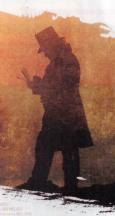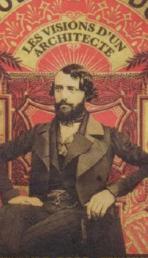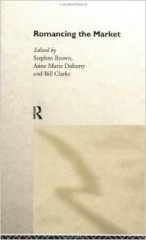mardi, 21 octobre 2014
Etymologie - Romantique #2
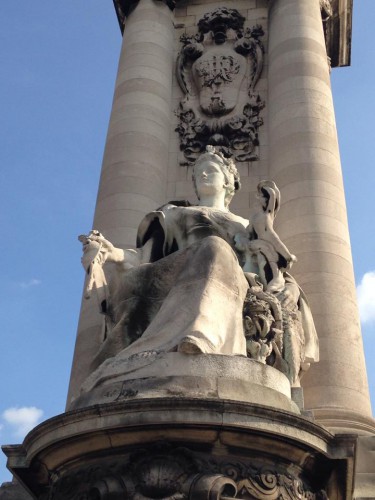
Crédits photographiques Elie Mehdi
Extrait de Romancing the Market, Brown, Doherty & Clarke, 1998, Routledge :
p.1
Two hundred years ago, a brace of young poets, William Wordsworth and Samuel Taylor Coleridge, scandalised polite society when they published the first edition of their poetic manifesto, Lyrical Ballads (Brett and Jones 1991). Inspired, in part, by the emancipatory euphoria that accompanied the unfurling of the French Revolution, and containing such never-to-be-forgotten (once-learnt-by-rote) classics as Tintern Abbey and The Rime of the Ancient Mariner, Lyrical Ballads ushered in a whole new era of Western culture, commonly known as romanticism or the romantic movement (Day 1996).
True, Wordsworth and Coleridge didn't actually employ the term 'romantic' (Furst 1971). The word and its cognates, what is more, were in widespread use prior to 1798 (Sanders, 1996). Indeed, the originality of Lyrical Ballads has also been called into question, as has the extent of the controversy surrounding its publication (Ashton 1996).Nevertheless, it is generally acknowledged that, thankgs in no small part to Wordsworth and Coleridge, the dog days of the eighteenth century witnessed a revolution in aesthetics, in sensibility, in thought. Not only did this represent, as Berlin (1991: 209) rightly records, 'the largest shift in European consciousness since the Reformation', but romanticism is still with us in the shape of our own great '-ism', our -ism in excelsis, the nulli secundus of -isms, postmodernism (Elam 1992; Livingston 1997 ; Readings and Schaber 1993).
p.2
The basic problem with -isms, of cours, is isn't (Brown 1995). That is to say, when it comes to -isms there isn't a single, satisfactory, all-encompassing, universally agreed definition, or even agreement on the fact that there isn't a single, satisfactory, all-encompassing, universally agreed definition of the -ism in question.
Whether it be realism, relativism, conservatism, liberalism, idealism, empiricism, communism, capitalism, fscism, feminism, gnosticism, aestheticism, asceticism, athleticism, mysticism, mesmerism, masochism, modernism, marxism, malapropism or any othe '-ism' that those mad for macaronicism, liable to lexiphanicism or smitten by sesquipedalianism are inclined to conjugate, the only thing that everyone knows for certain is that there is no certainty about the thing everyone 'knows". The ism isn't.
The same is true for romanticism, a subject which has been subject to all manner of competing definitions ranging from Rousseau's 'return to nature", though Pater's 'the addition of strangeness to beauty', to Phelps's 'sentimental melancholy' (see Furst 1971). How, for that matter, can we possibly forget Goethe's contention that 'romanticism is disease' (young Werther has a lot to be sorrowful for), Ker's suggestion that it represents 'the fairy way of writing' (not in this neck of the woods, buster !), and Fairchild's cryptic confabulation that romanticism comprises 'a desire to find the infinite within the finite, to effect a synthesis of the real and the unreal, the expression in art of what in theology would be called pantheistic enthusiasm' (keep taking the tables, sunshine, or the laudanum at least) ?
Aptly described as 'baffingly vague and used in an appallingly large number of different ways in different contexts' (Gray 1992: 251), romanticism is degined in The Oxford Companion to English Literature as :
A literary movement, and profound shift in sensibility, which took place in Britain and throughout Europe... Intellectually it marked a violent reaction to the Enlightenment. Politically it was inspired by the revolutions in America and France... Emotionnaly it expressed an extreme assertion of the self and the value of individual experience together with the sense of the infinite and transcendental... The stylistic keynote of romanticism is intensity, and its watchword is 'imagination".
(Drabble 1995: 853)
_ _ _
Contributors are Eric J. Arnould, Russel W. Belk, Stephen Brown, Bill Clarke, Anne Marie Doherty, Benoît Heilbrunn, Morris B. Holbrook, Christian Jantzen, Pauline Maclaran, Andrew McAuley, Per Ostergaard, Cele Otnes, Paul Power, Linda L. Price, Barbara B. Stern, Lorna Stevens, Craig J. Thompson, Robin Wensley
_ _ _
Ashton, R. (1996), The Life of Samuel Taylor Coleridge, Oxford: Blackwell.
Berlin, I. (1991), 'The apotheosis of the romantic will: the revolt against the myth of an ideal world', in I. Berlin (ed.), The Crooked Timber of Humanity: Chapters in the History of Ideas, London: Collins, 207-37.
Brett, R.L. and Jones, A.R. (1991), 'Introduction', in W. Wordsworth and S.T. Coleridge, Lyrical Ballads, London: Routledge, ixi-liv.
Brown, S. (1995), Postmoderne Marketing, London: Routledge.
Day, A. (1996), Romanticism, London: Routledge.
Drabble, M. (ed.) (1995), The Oxford Companion to English Literature, Oxford: Oxford University Press.
Elam, D. (1992), Romancing the Postmodern, London: Routeledge.
Furst, L.R. (1971), Romanticism, London : Methuen.
Gray, M. (1992), A Dictionary of Literary Terms, Harlow: Longman.
Livingston, I. (1997), Arrow of Chaos : Romanticism and Postmodernity, Minneapolis: University of Minnesota Press.
Readings, B. and Schaber, B. (eds) (1993), Postmodernism Acreoss the Ages: Essays for a Postmodernity That Wasn't Born Yesterday, Syracuse: Syracuse University Press.
Sanders, A. (1996), A Short Oxford History of English Literature, Oxford: Oxford University Press.
_ _ _
Romancing the Market
Stephen Brown, Anne Marie Doherty, Bill Clarke
1998
Ed. Routledge
312 pages
http://www.amazon.fr/Romancing-Market-Stephen-Brown/dp/04...
07:00 Publié dans Beaux-Arts, Les mots français, Photographie, Sculpture, Thèse | Lien permanent | Commentaires (0)
lundi, 20 octobre 2014
Etymologie - Romantique #1
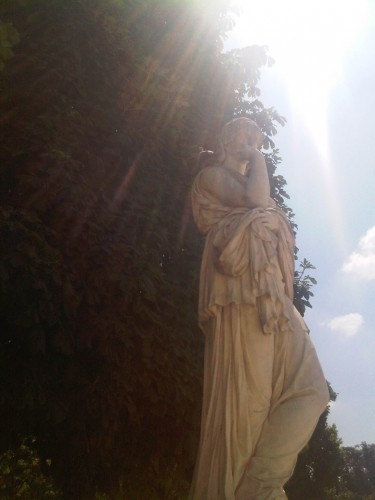
Crédits photographiques Jana Hobeika
Extrait de Romancing the Market, Brown, Doherty & Clarke, 1998, Routledge :
Pré-intro
Two hundred years ago the romantic movement precipitated a revolution in aesthetics, sensibility and thought. The neoclassical ethos of order, rectitude and rationality was replaced by an emphasis on creativity, innovation, individuality, spontaneity and imagination.
Marketing, as an academic discipline, is dominated by neoclassical ideals of dispassionate science, 'truth' and objectivity. The international contributors* to this volume argue for a neo-romantic approach to Marketing scholarship which will invigorate, infuriate and illuminate the discipline. [...]
By way of a prelude p.xviii
In our fragmented, de-centred, hyper-real, ever-accelerating fin de siècle marketing milieu, where mechanistic, technocratic, pseudo-scientific models of analysis, planning, implementation and control no longer seem to 'work', a radically different approach to marketing understanding is urgently required.
For many contemporary commentators, poets, novelists, creative artists and their copious late twentieth-century avatars - journalists, movie makers, television producers, stand-up comedians, etc. - can provide insights into the post-human condition that are as good as if not better than those derived from more established scholarly sources. [...]
p.xix
What's more, the notion that creative writers and artists are blessed with what Ernst Bloch terms 'anticipatory illumination', an ability to articulate the as-yet-inarticulate, to make the inchoate cohere, has been around for a very long time. [...]
Romanticism has been defined in a host of ways, but a central component is the enormous emphasis placed upon the imagination, the inspiration, the inner light of the creative writer and artist. The work of the romantics didn't so much passively reflect as actively illuminate that to which it referred. Illumination, as Abrams rightly observes, is the apotheosis of romanticism.
Illumination, tu be sure, is a wonderful word. Apart from its connection to the romantic movement, it carries connotations of Arthur Rimbaud, secret societies, stained-glass windows, medieval scriptoria, illuminated manuscripts, Welter Benjamin and, Heaven help us, the recent comeback album by 1970s' rock band, Wishbone Ash. For many Britons, moreover, illuminations is evocative of Blackpool, that vulgarian of urbanism, that civitas of the carnavalesque, that municipality of marketing. Blackpool, in many ways, is a perfect metaphor for marketing scholarship. It caome to prominence approximately 100 years ago ; it reached its peak in the late 1950s-early 1960s ; and, according to some authorityies, it is in terminal decline despite increasingly desperate attempts to add to its attraction ('roll up, roll up, Relationship Marketing, the biggest white elephant of the world'). Marketing practice, what is more, has long been characterised by the irreverent, bawdy, candy-flossed, end-of-the-pied, saucy picture postcard, dirty weekend spirit that is embodied, indeed epitomised, by Blackpool ('buy one get one free", "I can't believe it's not butter', 'FCUK' and, naturally, 'Beaver Espana').
p.xx
[...] ... about the romanticism of marketing on St Valentine's Day, of all days. Not only does St Valentine's Day epitomise the commercialisation of love - marketing the romance, so to speak - but the festival commemorates an early Christian priest, who was beheaded in 269CE for conducting the marriage ceremonies of covert lovers, though some say it was because he cured and converted the blind daughter of a Roman official. Yet others maintain that it was Valentine's voluminous outpouring of inflammatory letters and pamphlets during his incarceration - hence the tradition of sending cards - that precipitated the death penalty.
Be that as it may, this combination of decapitation, deception and discourse, with just a frisson of Levittite astigmatisme, cannot fail to send shivers down the spine of late twentieth-century marketing scholars. [...]
_ _ _
* Contributors are Eric J. Arnould, Russel W. Belk, Stephen Brown, Bill Clarke, Anne Marie Doherty, Benoît Heilbrunn, Morris B. Holbrook, Christian Jantzen, Pauline Maclaran, Andrew McAuley, Per Ostergaard, Cele Otnes, Paul Power, Linda L. Price, Barbara B. Stern, Lorna Stevens, Craig J. Thompson, Robin Wensley
** Marxist German philosopher, 1885-1977 > http://en.wikipedia.org/wiki/Ernst_Bloch
_ _ _
Romancing the Market
Stephen Brown, Anne Marie Doherty, Bill Clarke
1998
Ed. Routledge
312 pages
http://www.amazon.fr/Romancing-Market-Stephen-Brown/dp/04...
07:00 Publié dans Beaux-Arts, Les mots français, Photographie, Sculpture, Thèse | Lien permanent | Commentaires (0) | Tags : romantique, romantisme, valentin, saint valentin, blackpool, romanticism
dimanche, 19 octobre 2014
Kyrie - Messe en do mineur - Mozart
07:00 Publié dans Foi, Musique | Lien permanent | Commentaires (0)
samedi, 18 octobre 2014
Considérations sur le cynisme
Watch what people are cynical about, and one can often discover what they lack.
Si l'on regarde ce sur quoi les gens sont cyniques, on peut souvent découvrir ce dont ils manquent.
George S. Patton (1885-1945)
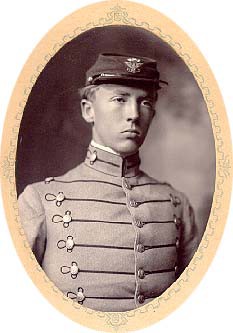
 1907 Bradley, Eisenhower, and Patton in Europe, 1945
1907 Bradley, Eisenhower, and Patton in Europe, 1945
07:00 Publié dans Citation, Ecrits, Réflexions, philosophie | Lien permanent | Commentaires (0) | Tags : patton, eisenhower
vendredi, 17 octobre 2014
Concerto 22 - Mozart
Remerciements à Florence Martinet
pour m'avoir aidée à identifier ce fameux 3e mouvement.
¤ ¤ ¤
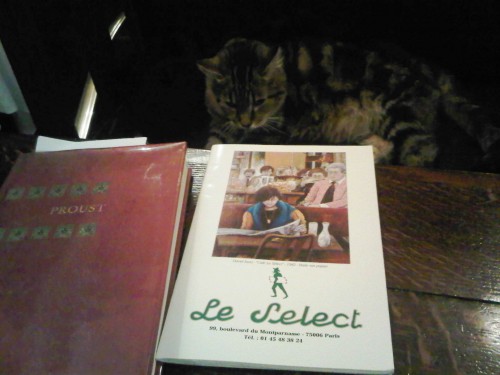
Feu Mickey, le chat du Select, crédits photographiques Jana Hobeika
Le 3e mouvement commence à la minute 22'33
http://www.youtube.com/watch?v=8hgaxI3JRgg
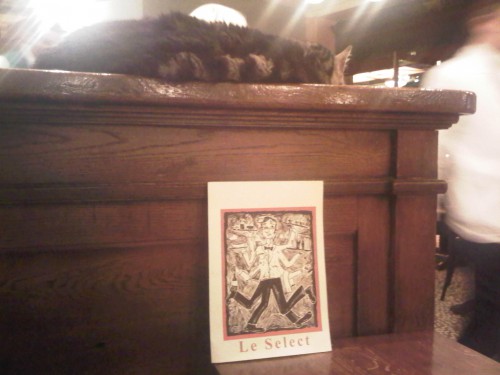
Feu Mickey, le chat du Select, crédits photographiques Jana Hobeika
Le 3e mouvement commence à la minute 21'55
http://www.youtube.com/watch?v=5aeLhUEfejg
07:00 Publié dans Musique, Photographie, Trivialités parisiennes, Votre dévouée | Lien permanent | Commentaires (0)
jeudi, 16 octobre 2014
Considérations sur la maternité et le couple chez l'artiste - Martha Argerich
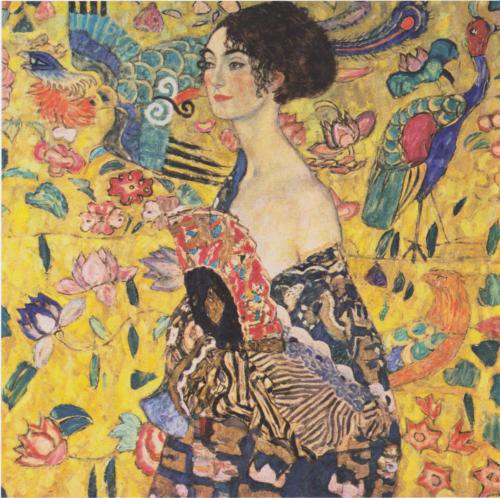
Lady with fan, Klimt
¤
¤ ¤
About Martha Argerich, pianist
"Nowadays I'm touched by the passion people feel for her. And my childhood beliefs resurface.
My mother is a supernatural being in touch with something beyond the reach of ordinary mortals."
¤ ¤
¤
http://www.youtube.com/watch?v=2Kkj782DzJQ
http://www.youtube.com/watch?v=nOmqBYJ5-lM
http://www.youtube.com/watch?v=Q5VKlt3iJvQ
http://www.youtube.com/watch?v=CHWYofrfPak
Documentary Bloody daughter
Directed by her daughter Stephanie Argerich Blagojevic.
Produced in 2012 and available on www.medici.tv's catalogue
available on subscription.
07:00 Publié dans Musique, Portraits de personnalités | Lien permanent | Commentaires (1)
mercredi, 15 octobre 2014
Armstrong aged 8, 9, 11
Mozart Concerto 24
"Here's the gifted pianist Kit Armstrong at nine years of age playing his first Mozart Concerto with an orchestra. I had invited him to play Mozart's A Major Concerto based on a performance I heard at Music Teachers' Association of California Convention in July of that year. Three weeks before this posted performance he asked to play the c minor Concerto - complete with his own cadenza mind you - instead. So here it is - on a program series titled "KIDS PLAY THE DARNDEST THINGS". I'm sure you will enjoy it. Fasten your seatbelt....(His teacher and coach for this performance was Dr. Mark Sullivan in Long Beach, Ca - Bravo!)"
BIO: Kit Armstrong (born March 5, 1992 in California) is an American classical pianist and composer. At 10 he had composed more than 15 works, graduated from Los Alamitos High School, and attended university. At 12 he studied at the Curtis Institute of Music, the Royal Academy of Music and the Imperial College in London. He also attended the Chapman University in California, USA. In 2008 he was a co-winner of The ASCAP Foundation Morton Gould Young Composer Awards.
http://www.youtube.com/watch?v=0m-7ALr65r4
Bach Concerto in D Minor
Third movement allegro... Kit Armstrong has performed with the Miami International Piano Festival 3 times. This performance from 2000 when he was 8 is not ours but Mr. Armstrong has given permission to post it.
http://www.youtube.com/watch?v=8mo0mbEt9Kc
Beethoven Tempest Sonata
The first movement of the "tempest" sonata:Largo allegro. This is a live performance from the Miami International Piano Festival 2004.
http://www.youtube.com/watch?v=clHevF_A7nI
Chopin Etude Op25 N°7
Frederic Chopin Etude Op. 25 No. 7 live from Miami International Piano festival.
http://www.youtube.com/watch?v=s26Y8OdkEyg
07:00 Publié dans Musique | Lien permanent | Commentaires (0)
